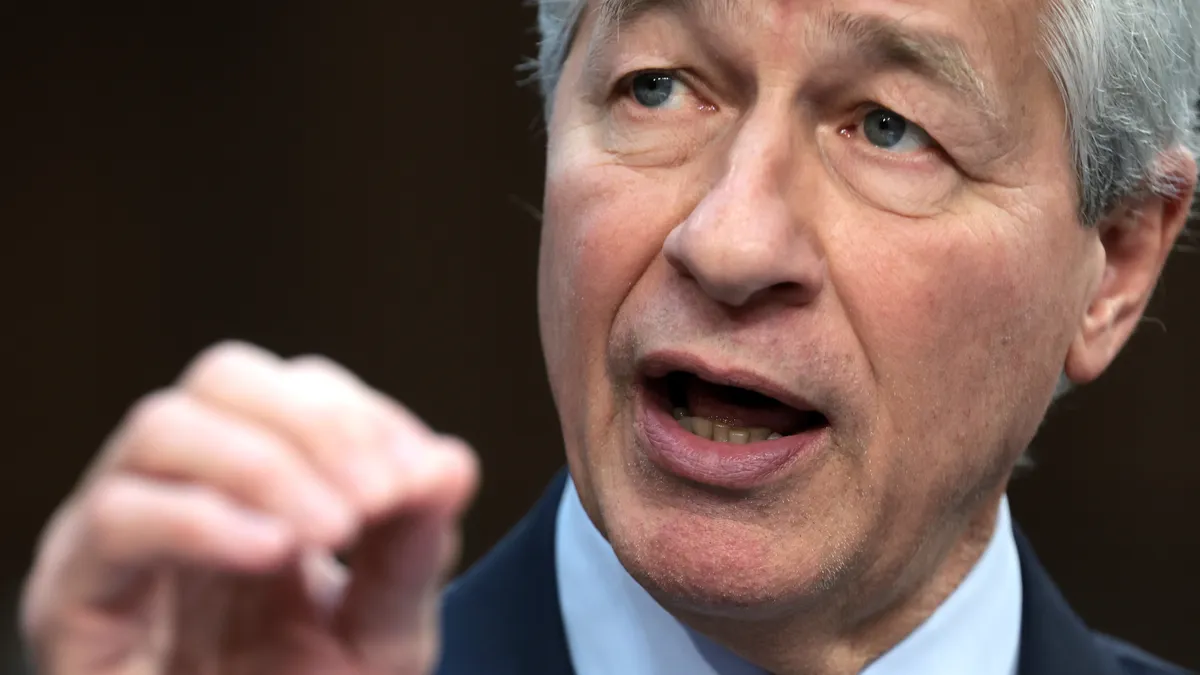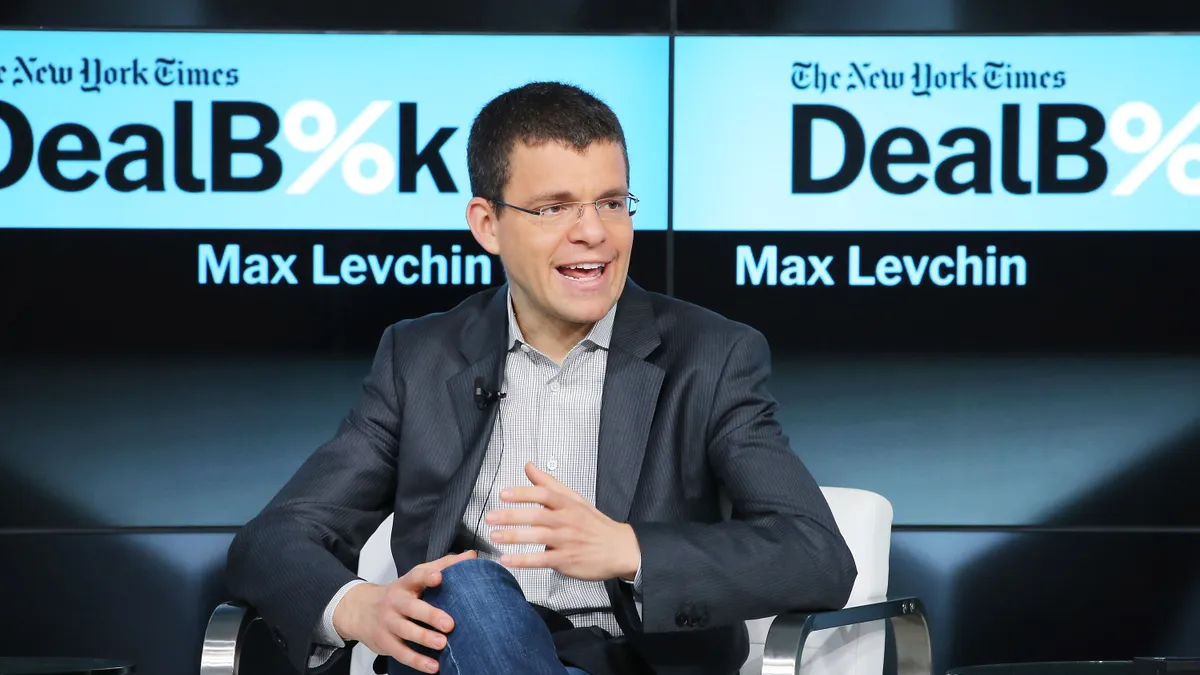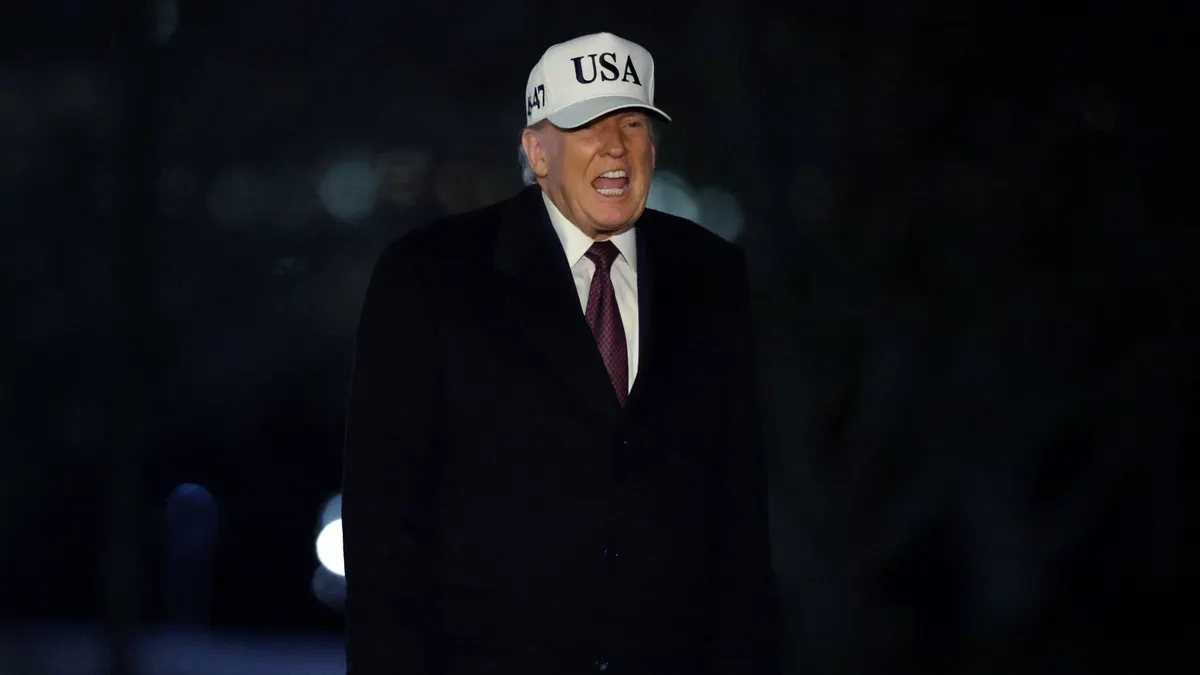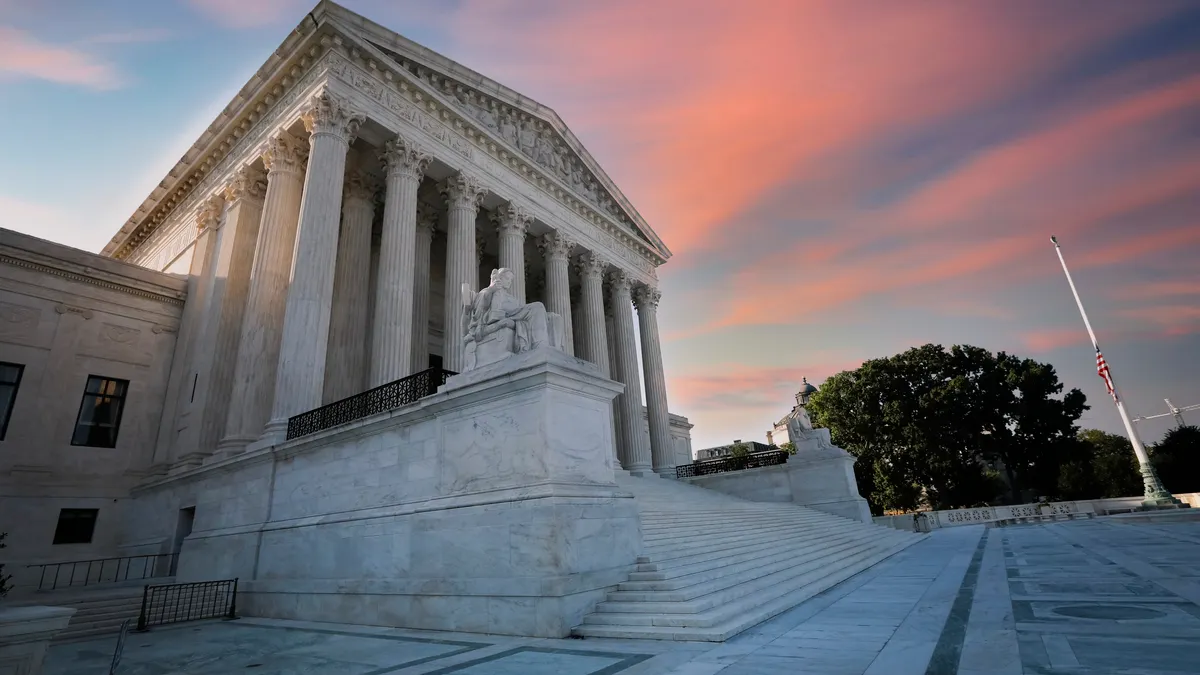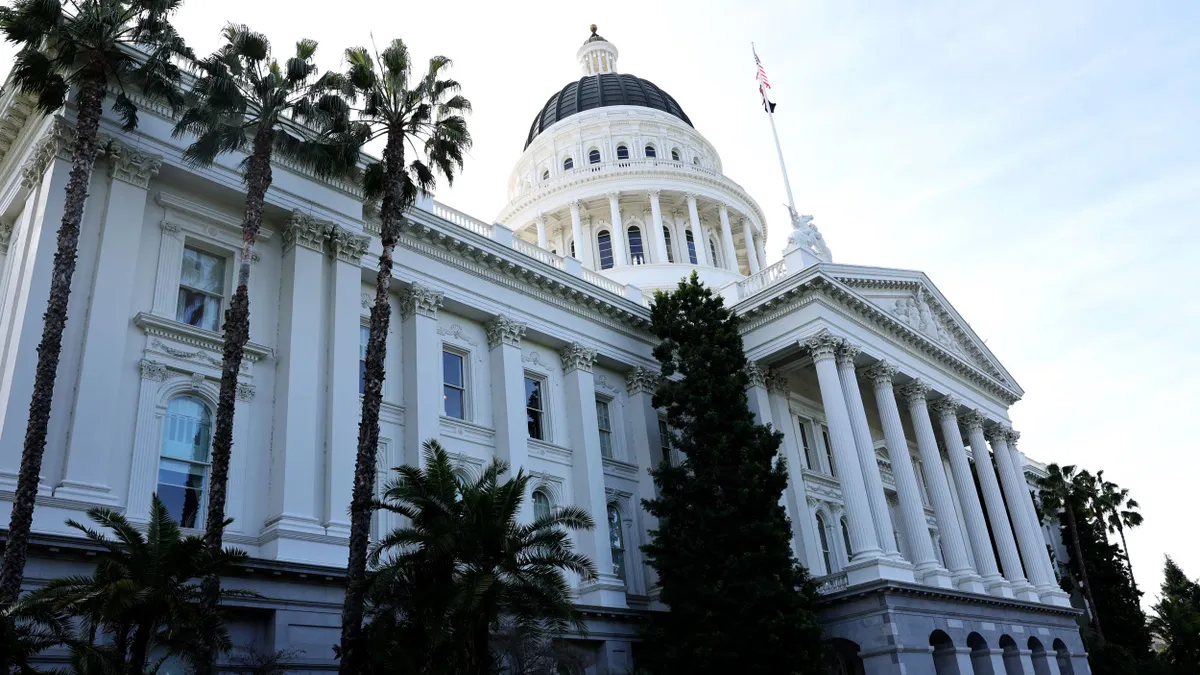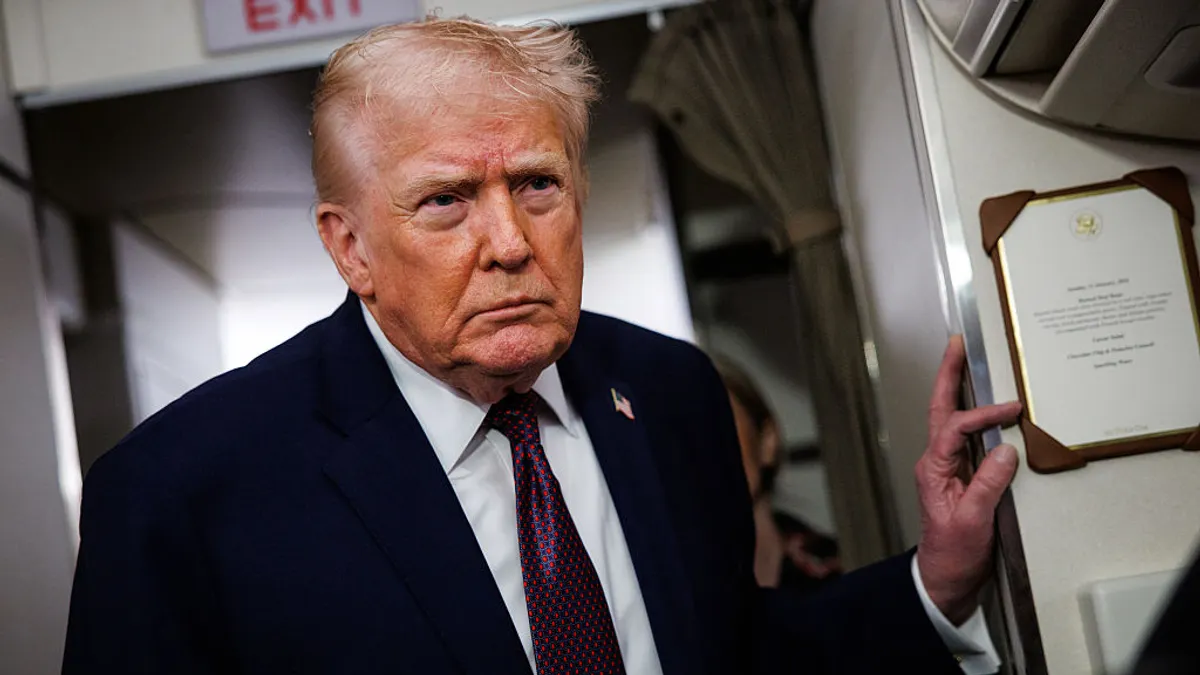A pair of developments this week in financial oversight circles is showing that regulator roulette isn’t just for summer.
The White House, relatively quietly Tuesday, sent to the Senate a nomination for Travis Hill, the Federal Deposit Insurance Corp.’s acting chair, to lead the agency on a permanent basis.
Amid similar calm on the same day, the Trump administration withdrew the nomination for Brian Quintenz to helm the Commodity Futures Trading Commission, according to a Politico report.
There were no splashy announcements on the “Presidential Actions” drop-down of the White House website. No all-caps posts on Truth Social. But confirmation nonetheless.
“Being nominated to chair the CFTC and going through the confirmation process was the honor of my life,” Quintenz said in a statement to Politico. “I am grateful to the President for that opportunity and to the Senate Agriculture Committee for its consideration. I look forward to returning to my private sector endeavors during this exciting time for innovation in our country.”
Likewise, banking trade groups and certain (read: Republican) lawmakers telegraphed their congratulations to Hill.
“In serving the agency since 2018 … Hill has demonstrated a keen understanding of the complex policy issues facing our financial system,” American Bankers Association CEO Rob Nichols said in a statement Wednesday.
The reference to Hill’s tenure at the FDIC may lend credence to what may have seemed, to some observers, a foregone conclusion: that Hill was an obvious choice to lead the agency in this administration. Despite having been named acting chair on day one of President Donald Trump’s second term, Hill arguably charged harder out of the gate than any bank regulator – laying out 15 priorities for the FDIC on his first full day holding the agency’s reins.
And in his first 8½ months on the job, he’s championed a streamlined application process for de novos and industrial bank charters, toppled barriers to crypto activity by banks, and sought to “eradicate” reputational risk as a component in supervision. Hill has also proposed rescinding Biden-era clampdowns on bank mergers and brokered deposits, and floated changes to how the FDIC calculates the Deposit Insurance Fund’s reserve ratio.
Still, nominating Hill to permanent chair goes against a philosophy Trump espoused in 2019 – also while the country was flirting with a government shutdown: Namely, that the president doesn’t mind keeping members of his administration in “acting” roles.
“I like acting,” Trump said, at a time when several Cabinet posts were open. “It gives me more flexibility.”
Keeping financial regulators in “acting” roles is not unique to Trump. Ask Michael Hsu, who served as acting comptroller of the currency for nearly the entirety of the Biden administration.
In lauding the FDIC nomination, Senate Banking Committee Chair Tim Scott, R-SC, cited Hill’s “principled leadership” as a “stark contrast to the toxic culture that persisted” under Biden-era Chair Martin Gruenberg.
Bank trade groups greeted the nomination with markedly less partisanship.
“Travis’s deep experience within the agency and across the financial policy ecosystem will serve the country well,” Consumer Bankers Association CEO Lindsey Johnson said in a statement Wednesday. “America’s leading banks look forward to working with him to strengthen consumer confidence, support innovation, drive economic growth and access to capital, and ensure our banking system continues to be the most resilient in the world.”
What it means for the CFTC
The withdrawal of Quintenz’s bid to lead the CFTC, meanwhile, comes less than three weeks after the nominee appeared to imply, in a social media post, that Gemini co-founders Tyler and Cameron Winklevoss tanked his nomination.
Quintenz last month posted screenshots on X of an exchange in which Tyler Winklevoss expressed frustration over what he labeled “7 years of lawfare trophy hunting” by the CFTC and asked the nominee how he “plan[ned] to align with President Trump” to “make amends” for the regulator’s past action against Gemini.
Gemini paid $5 million in January to settle a lawsuit the CFTC brought against the crypto exchange, alleging it made false and misleading statements regarding a bitcoin futures contract it was pursuing in 2017.
Quintenz replied that the issue should be handled by a confirmed CFTC chair, adding that he would look into it if he got the job.
Days later, a report surfaced in Politico, alleging the Winklevosses contacted Trump, pressing the president to reconsider Quintenz as a nominee.
The Senate Agriculture Committee subsequently delayed a vote that could have advanced Quintenz’s nomination to the full chamber.
The Winklevoss twins, incidentally, pledged $21 million in August toward a new super political action committee meant to support “champions of President Trump’s crypto agenda in primary races and the midterm elections.”
“I’ve never been inclined to release private messages,” Quintenz wrote last month on X. “I believe these texts make it clear what they were after from me, and what I refused to promise.”
Quintenz, for his part, posted his exchange with the Winklevosses two days before Gemini was set to go public.
A White House official told Politico on Tuesday that Quintenz “remains a trusted ally, and the Trump administration looks forward to working with him in other capacities.”
The withdrawal of Quintenz’s nomination comes as the CFTC operates with just one commissioner, Acting Chair Caroline Pham. As recently as May, the agency had four commissioners, but Democrat Christy Goldsmith Romero retired from federal service; Republican Summer Mersinger left to become chief executive of the Blockchain Association; and Democrat Kristin Johnson departed in September. Pham, too, has said she would leave the CFTC as soon as Quintenz is confirmed.
Tuesday’s developments presumably extend Pham’s stay at the agency.
The White House official, for what it’s worth, told Politico on Tuesday that Trump would announce a new nominee to lead the CFTC “in the near future.”
Based on past comments, Trump will be OK with the CFTC regardless. After all, Pham is “acting.”








